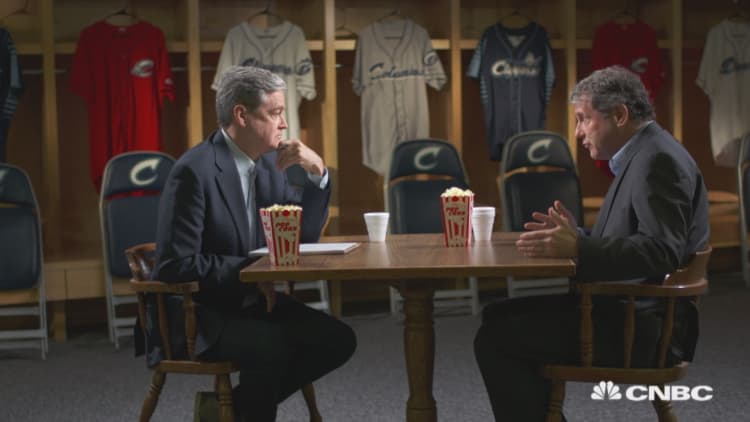
CNBC's John Harwood on Friday talked with Sen. Sherrod Brown, D-Ohio, who is up for re-election on Nov. 6. Here, they discuss regulating Wall Street.
John Harwood: If you guys win the Senate, you'll be the chairman of the Banking Committee. Even if you don't, a potential Democratic takeover of the House would give you more leverage as the ranking member of the Banking Committee. You gave a speech earlier this year where you said that you thought there was something fundamentally rotten in American finance. What is it that's rotten?
Sherrod Brown: Well, what's rotten on Wall Street is the influence the financial services industry continues to exert on Congress. Whenever they want something, they almost always get it. There's this collective amnesia that's set in on Congress, especially on Republicans, but a few Democrats, from time to time, where they forgot what happened 10 years ago.
Subscribe to John Harwood's Speakeasy podcast on iTunes
They forgot that it was Wall Street greed and overreach that cost hundreds of billions of dollars in retirement savings, cost millions of jobs, caused millions of foreclosures. And now, Wall Street comes knocking again. They want to deregulate this administration's appointees to a number of federal regulatory agencies, want to deregulate foreign banks in the United States. They want to weaken capital requirements on Wall Street. They want to weaken the consumer protection bureau.
Harwood: So would your objective be principally to prevent Dodd-Frank from being weakened, or are there affirmative steps beyond Dodd-Frank that you think we should take?
Brown: Well, of course, it's both. You don't allow weakening of the rules that have made Wall Street behave a little better. But there are always new challenges, and especially on capital requirements. And I would add, especially in the consumer protection agency. Rich Cordray, a close friend of mine who happens to be running for governor of this state, made his name as the head of the consumer bureau. And he stood up to Wall Street. We have a head of the consumer bureau now that's been basically a lapdog for Wall Street. And that's a big difference with what's happened in Washington – Rich Cordray versus a lapdog.
Harwood: But it sounds like it's more of a defensive agenda – that is, to prevent things that have been done from being dismantled, as opposed to trying to break up banks or reimposing Glass-Steagall.
Brown: Yeah, I have little interest in reimposing Glass-Steagall. That's an answer to a question that's not being asked. Breaking up the banks – they're too big and too powerful – that's not on my agenda. My agenda is to, as you say, play defense, to make sure we have a vibrant consumer protection agency. It's to do oversight. I mean, the appointees from the administration to be these regulators are people, some of whom had a lot to do with the housing crisis, and a lot to do with the Wall Street greed and overreach. So you're damn right I play defense when they're trying to do things to undermine the economy.
The animal spirits of Wall Street will always mean bankers want to take more risk. I don't blame them. They're acting in maybe their stockholders' best interest – not their communities', but their stockholders' best interest. You need regulators to say no. You need regulators, 120 miles from here on Lake Erie, to make sure people don't dump stuff in Lake Erie. You need regulators to make sure banks don't take too much risk.
This park is named after a midsized bank, Huntington Bank. They are a good bank. They do things right the great majority of the time. They're a great small business lender. I'm way less concerned about their overreach than I am the banks that are literally 10 times their size – in some cases, 15 times their size.


